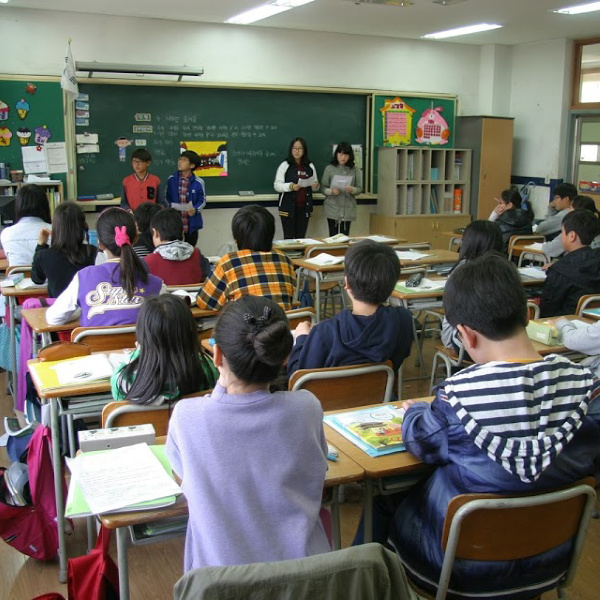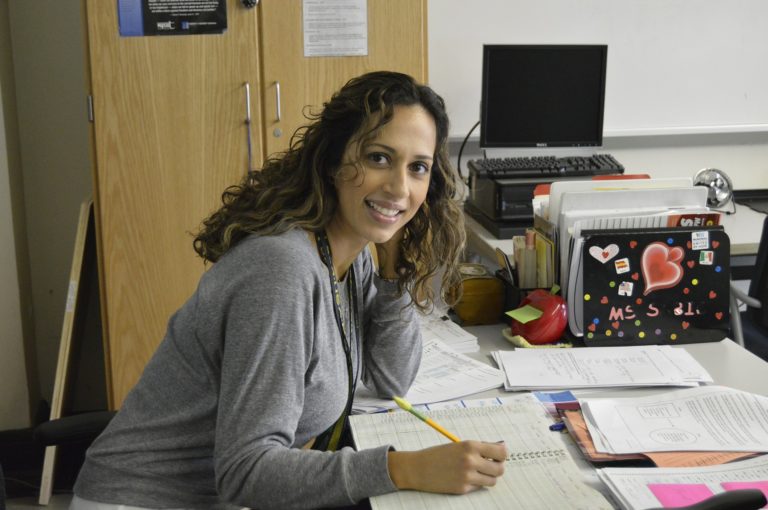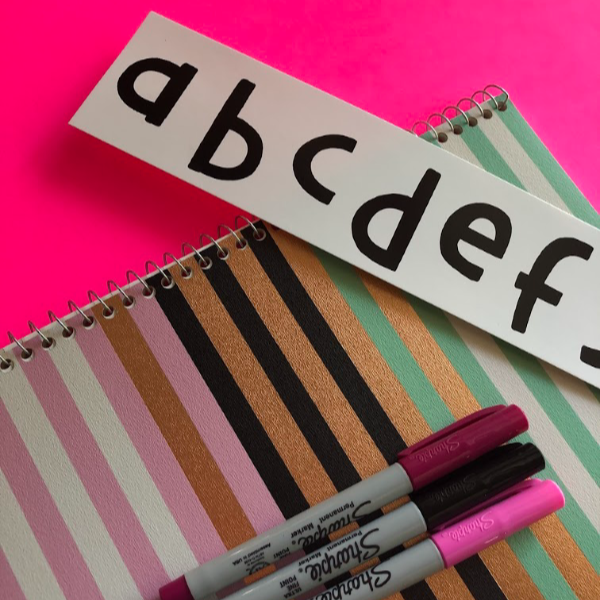17 Golden Rules of Teaching

How Can there actually be 17 “Golden Rules” for Teaching?
These “Golden Rules” will help you stay organized and improve your classroom organization. We, can begin with the original “Golden Rule.”

- Do unto others as you would have them do unto you.
- If you borrow something, return it.
- Accept blame if you are at fault, stating that you will do better from now on.
- Teach your students to be moral and care for others.
- Leave your problems (and bad moods) at home.
- Share with others.
- Be on time for any duties.
- Prepare for lessons – your students deserve it.
- Laugh at yourself but not your students (unless they are being silly, then it’s okay).
- Arrive at work early and don’t stay too late afterward.
- Clear your desk each afternoon before leaving for the day.
- Have the students help you keep the room straight (it’s their room too).
- Assign students “helper jobs” (9 out of 10 of them love it).
- Help a colleague who’s in a bind (you never know when you might need help too).
- Greet your Principal and Assistant Principal kindly when you see them.
- Be nice to secretaries and custodians.
- Follow the “two-minute” rule.
Now that you have the list, I’ll go through and give you a little explanation about each of them.
1. Do unto others as you would have them do unto you.
I absolutely love this rule. I learned this as a little girl and taught it to my own children as well.
At school, with my students I would often ask them to put themselves in the other student’s position and think about how they would feel if someone did (said or acted) like that to them.
Most of the time I could see the little wheels turning in their brain as they thought about it for a moment. And of course, most would realize their wrongdoing.
2. If you borrow something, return it.
That’s a simple rule to understand. It is so frustrating to loan something out and then have to go get it yourself after your colleague has had numerous days to return it. And now you need it. Ugg!
That happened to me the most with my cutting board. Although the school had a big one in the teacher’s lounge, I inherited a smaller one from my aunt (a retired teacher) and other teachers near me would borrow it. I didn’t mind, but it was frustrating when I needed it and had to go fetch it myself.
Be considerate, return something when you borrow it.
3. Accept blame if you are at fault, stating that you will do better from now on.
This one can be hard for some teachers (and people in general).
I remember once (in my early years of teaching) my principal called me on the fact that I had said something unkind to a student and the parent had called and complained.
Of course, I was mortified at that moment; realizing it was true and I’m not one to lie. So, although I considered (for an instant) lying and saying I didn’t do it, I realized that’s not me and I can’t do that.
So, I admitted to saying it and told him all about how that student had been misbehaving and getting on my nerves for months. Then I said, “I’m sorry, I won’t do it again.” And the principal was fine, asking me to apologize to the student (which I did).
4. Teach your students to be moral and care for others.
This may be one of the more difficult rules to teach certain students. Most (a vast majority) will be kind and care for other students, but there are a few that this is a challenge for.
More likely than not, they are having a difficult time at home for one reason or another. If you are doing your job well, you are reminding students once or more per day about being moral, kind and caring for others.
Just model this behavior and most students will follow your example.
I have created a handy Classroom Routines Checklist that you can download for FREE below. Just submit your email address and I will send it right off to you!
**
5. Leave your problems (and bad moods) at home.
I realize this is a lot to ask; but think of yourself like an actor. An actor puts on a facade of the character; he/she does not go through the day in a funk because the morning went badly at home while getting the kids ready for school. They have to pretend that everything is okay.
I had a few days like this where I was totally wiped out before the day even began (emotionally drained) and yet I put on my smile the minute I greeted my class at the door.
6. Share with others.
Kindergarten Teachers are very good at teaching children to share. As teachers, most of the time we are willing to share with our team partners if they also share with us.
I have worked at a school where teachers shared freely, at another school where teachers actually planned together and divided up the tasks (making enough for the entire grade level). This only works when everyone pulls their weight and gets their items completed on time.
And other schools don’t share at all; working in a very competitive, cut-throat environment.
I prefer the first scenario, although the second is nice if you are part of a very productive and fair team.
7. Be on time for any duties.
Now, I realize we will all have a few days in our year where we get stuck talking to a parent or a student, or we lose track of time and our class goes out to recess late. BUT for the most part, try your best to be on time for your duty location.
8. Prepare for lessons – your students deserve it.
Come prepared each day for the entire day. I have another post where I discuss planning a week ahead so that you are never unprepared. How to Prepare and Stay Focused.
If you are going day-to-day frantically planning at the end of the day (when you are tired) for the next day, or worse yet, not planning at all but trying to go by the “Teachers’ Edition” only for each lesson, then you are doing yourself and the students a disservice.
Plus, you are adding to your own stress level TEN FOLD. I wouldn’t be surprised if you are actually cutting off years from your life by dealing with this type of stress daily.
Can you begin to see how these rules help you stay organized and improve your overall classroom organization?
Plan ahead, you will never regret it.
9. Laugh at yourself but not your students (unless they are being silly, then it’s okay).
Don’t make your students the brunt of your jokes. It’s cruel and although they may act as if it doesn’t hurt, it really does. If the student frustrates you, vent when you get home, or talk to your principal or a colleague, get ideas for dealing with these students, but don’t make fun of them.
When you do something silly or make a mistake in front of the class, be the first to laugh at yourself. This will show your students that everyone makes mistakes and that it’s not the end of the world.
10. Arrive at work early, and don’t stay too late afterward.
Try your best to arrive at work early if you can. I know that if you aren’t a morning person this is very difficult but try your best.
When I was a principal at one school, the start time for teachers was 30 minutes before the start of classes. This was mandated by the district; this district had an “arrival time” and a “leaving time.” I realize some schools don’t, but this one did.
Anyway, there was an excellent teacher who was not a morning person and eight out of ten days, she would arrive just as students were lining up to enter the classroom.
Now, the flip side of this story (there are always two sides to every story) is that she stayed late at work almost every night of the week (sometimes up until 7:00 at night). I bet you guessed that she was single with no kids. (wink)
So, as her principal, I was willing to overlook this tardiness, BUT her colleagues were complaining that it was not fair that she was late every day. So, although she was very prepared to teach and her class ran very smoothly, I had no choice but to call her in to discuss her tardiness at arrival time.
The second part of the “rule” about not staying late is merely for your own sanity. You cannot live at work; we all need other outlets. And if you are following my suggestions about preparing a week ahead of time, then you can easily walk out the door at a reasonable time each day.
For an organized teacher, an hour each day should be enough to stay ahead in your planning.
11. Clear your desk each afternoon before leaving for the day.
You would be amazed how this one simple task will enable you to start the next day with an open mind and a cleared slate. Plus, if you do this each afternoon, your desk will not get piled up with more and more things.

12. Have the students help you keep the room straight (it’s their room too).
End your final lesson of the day about seven to ten minutes before dismissal time (if allowed). This allows students to put away their books and folders from that subject, gather their homework and items, pack up their backpacks, and finally – help you straighten up the room.
Each student needs to be responsible for the carpet/floor area around his/her desk. Have them pick up the bigger pieces of paper and items. Have them stack their chairs or put them up on the desk so the custodian can clean the floor (or whatever your school’s system is).
13. Assign students “helper jobs” (nine out of ten of them love it).
Assigning jobs is such an excellent idea for elementary and middle school. I can’t speak for High School since I never taught that grade level. But in the other grades, students enjoy taking turns with specified jobs in the classroom.
Figure out a system that works for you, I would assign jobs for a week – each Monday. I used a process to draw names and allow the students to select which job, but they could not opt out. They had to help out.
So, the final student drawn got the least favorite job but was assigned this anyway. In my entire teaching career, I never had any child refuse to do a job, and I never had any parent complain about me assigning jobs. So, it’s a WIN-WIN. You get the needed help and the students learn responsibility and shared chores.
14. Help a colleague who’s in a bind (you never know when you might need help too).
We all have times when we need help. RIGHT? At just about every school I have worked at, teachers always step up to help one another in a bind.
Whether it’s a sick child that necessitates leaving work early, a death in the family, an accident that warrants a visit to Urgent Care. We all need to follow this one on the list of 17 golden rules of teaching.
No matter what the “emergency” you need to step up and help out. BECAUSE you would want the same consideration when you need help.
15. Greet your Principal and Assistant Principal kindly when you see them.
Since I’ve been in each of these positions, I know that they are both just as difficult as being a teacher. Those that are good at their job are very caring people and are true advocates for their teachers.
If you work for a difficult administrator, I am sorry for your situation and hope that you will find a resolution soon.
My hope for all of you is that you work with caring, competent administrators who indeed deserve a smile from you and a kind word (and they should do the same for you).
16. Be nice to secretaries and custodians.
I know that you always read this and hear this advice from others, but it’s TRUE!!
The secretary (I guess I’m now supposed to be PC and call him/her an “administrative assistant”) knows the school inside and out – unless he/she is new. And he/she can get things done for you and intercept upset parents when need be.
A good secretary is a true gem and needs to be treasured. The same can be said for a great custodian. Over the years, I have worked with good and bad custodians. Both want to help teachers, so no matter their skill level, do your best to befriend them before the beginning of the school year.
YOU WILL NEVER REGRET IT!
17. Follow the “two– minute” rule.
So, I’m sure you are asking “what’s the two-minute rule?” I learned this recently from my sister (who doesn’t have anything to do with schools) and it’s so good I want to add it to this “Golden Rules” list.
The gist of this is that with any task you have to do, whether at home, school or other places; if you can crank it out in two minutes or less, do it right then and there. This helps your life run more smoothly and all the little tasks don’t pile on one another to make a big mess down the road.
Now, I have to qualify this “rule” because you cannot stop teaching to complete a “two-minute task” BUT, you can apply this rule before class begins, and at the end of the day (along with at home).
When my sister told me about it, I became more conscious of tasks; so instead of tossing some clothes on the chair by my bed, the little “reminder” came up in my thoughts and I realized it would easily take me much less than two minutes to hang them up in my closet or toss them in the hamper, so I stopped and did it (and believe it or not, I felt much better about myself once I did that). I started putting away little items around the house, which made the house stay neater also. Win-Win again!
So now that you have this list of 17 Golden Rules, take this knowledge with you back to your school and life will improve.
Let me know if you have any other “Golden Rules” I should add to the list.
You Teacher Buddy.







I have a question. As an administrator and former teacher, what is the correct way of handling the situation when the principal walks in your room? Ignore and continue teaching or greet them? I don’t want to be rude but at the same time I don’t want to disengage the class. I would appreciate your feedback.
Hi Deborah, I’m glad to hear from you. I think the best thing to do (in my opinion) would be to look up at your principal and smile. Usually, if he/she needs to speak to you, at that time they would say something. If they just smile back or nod, then continue your teaching. Also, I would teach the students not to say hello or interrupt the lesson; (they can wave or smile if they want to). Most times, the principal is just conducting a quick walk-through visit; but sometimes they need to ask you something – so you had a great question. Good luck this year – I hope it’s a great one for you.
Dawn, Your Teacher Buddy